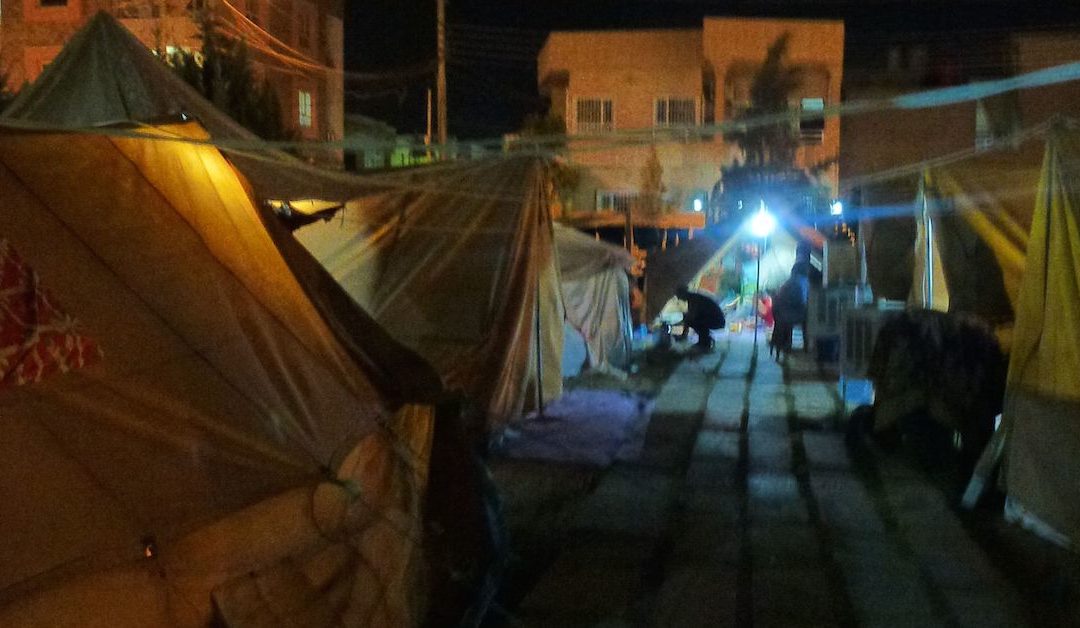After a two-day flurry of emails, phone calls, and text messages, David and I confirmed our maiden voyage to Iraq. Less than 48 hours after David had arrived back home from a trip, we were back on the road and on our way.
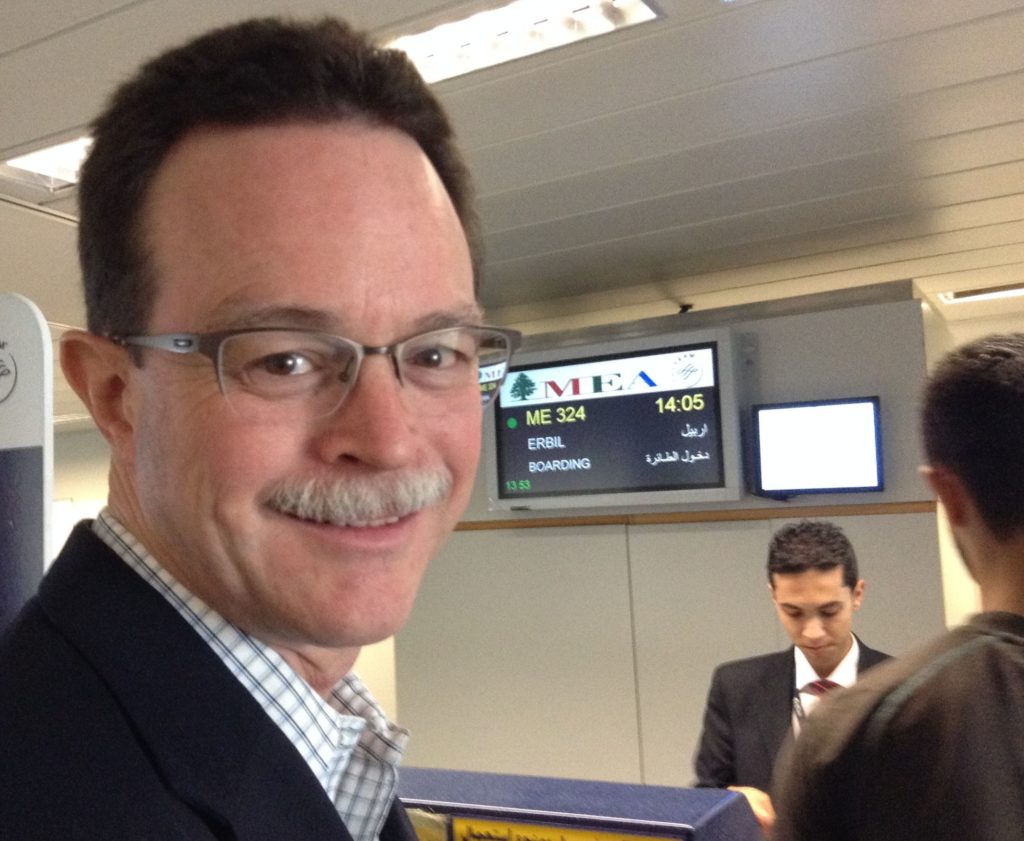
No turning back. Boarding to Erbil, Iraq.
Into the Unknown
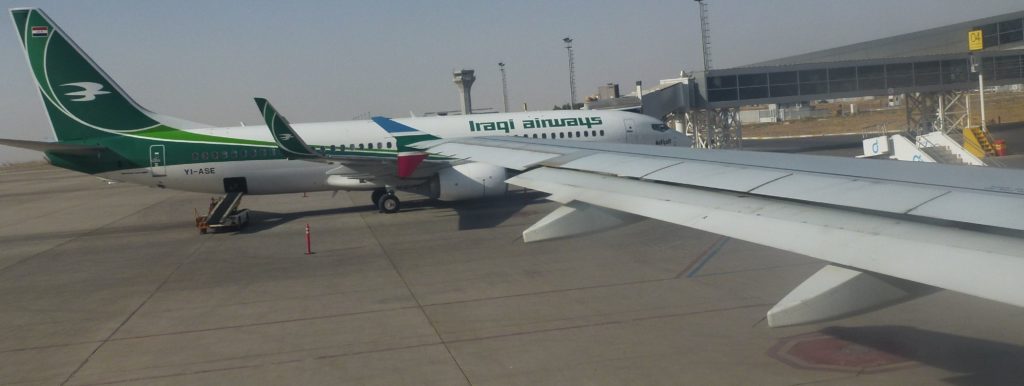
Now it’s real.
It didn’t really hit me until I looked out my jet window, and only saw Iraqi planes on the tarmac. We were heading into an area that had just traded hands between competing factions. The refugee situation was dire. Our aim was to do anything we could to offer encouragement and help. Little did we know that we were in for a life-changing encounter.
Our New Neighborhood
The first urban tent camp during our visit on a sultry summer evening had improvised electricity, shared water taps, and even some rudimentary air conditioning in UNHCR tents. But most of all, that new tent camp was packed with wall-to-wall people.
A local church had welcomed in displaced families from all backgrounds. These families slept on the church floor, covered every corner of the property, and then overflowed and filled up the public gardens outside.
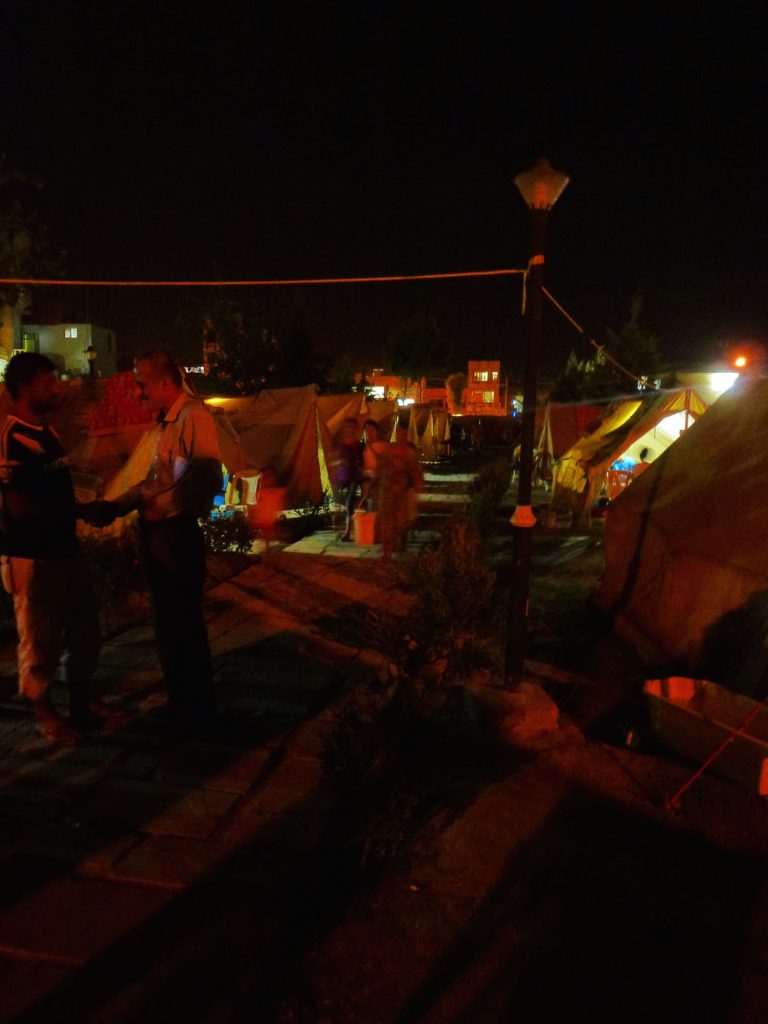
Local camp in a city.
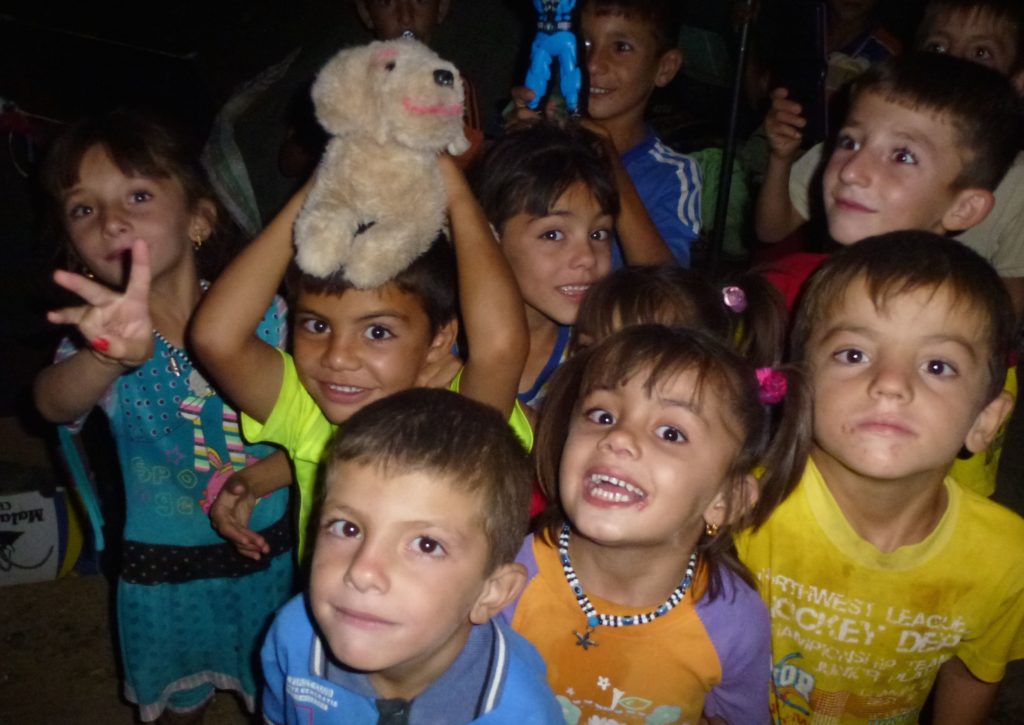
Ever resilient children in the camp smiling for the camera.
The next morning, after a scorching three-hour drive, we hiked through a second UN tent camp, packed with ethnic minorities who had fled the conflict, displaced time and again. They had settled for now in this temporary camp on the outskirts of a city, with precious little access to water and electricity.
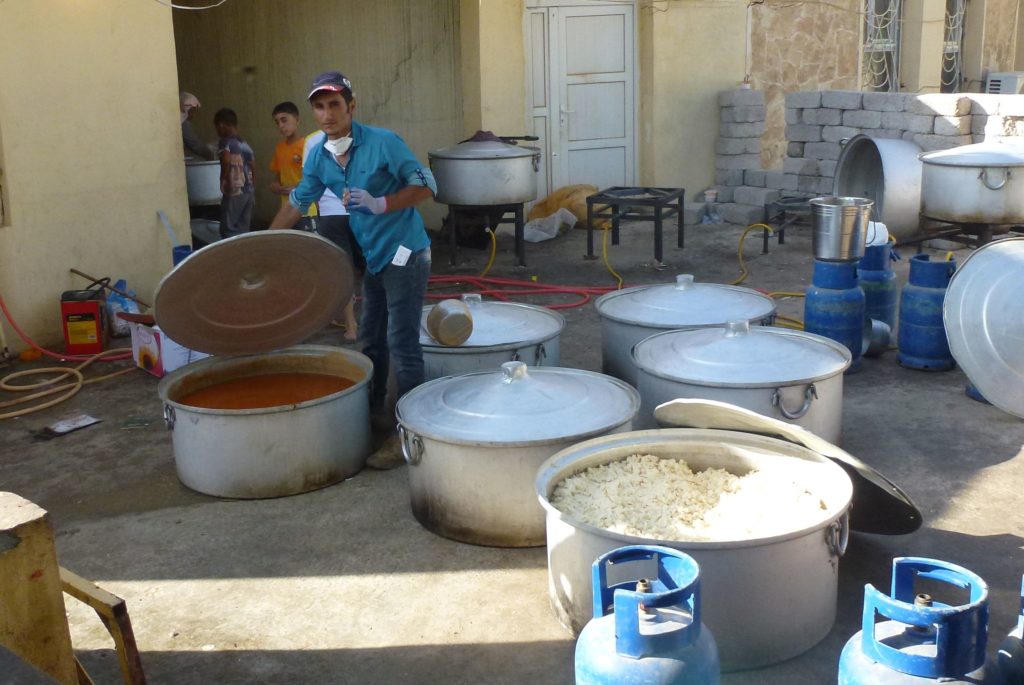
Food prep for 60,000 refugees.
Then on another isolated edge of the city, we discovered 111 families who had taken shelter in the abandoned stalls of a wholesale vegetable market. The lucky families had a couple walls and a roof; the rest sat out in the open on concrete. Totaling over 700 in all, they shared a single water tank and tap, six toilets, and two ramshackle curtain enclosures that served as shower stalls – but with no running water.
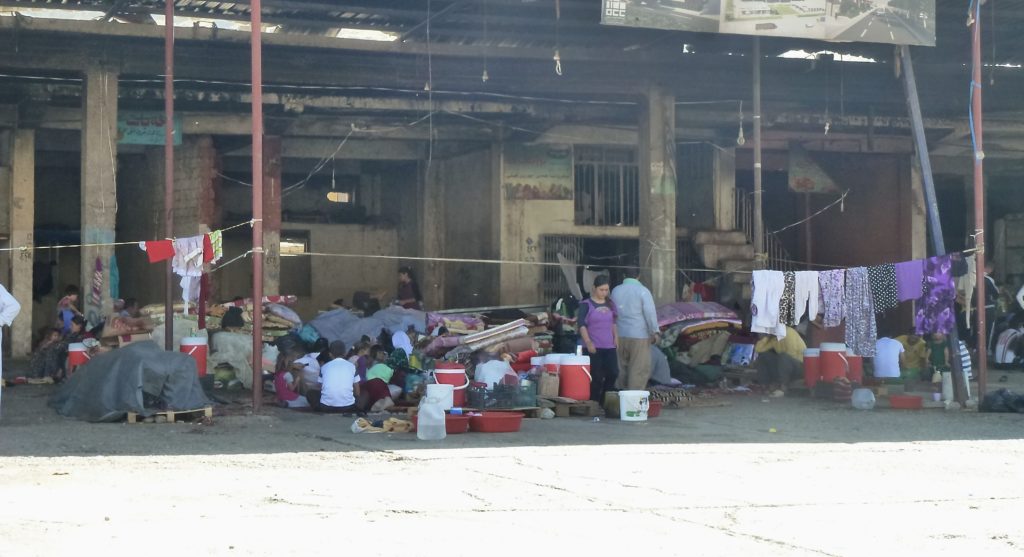
Eking out life in an abandoned market.
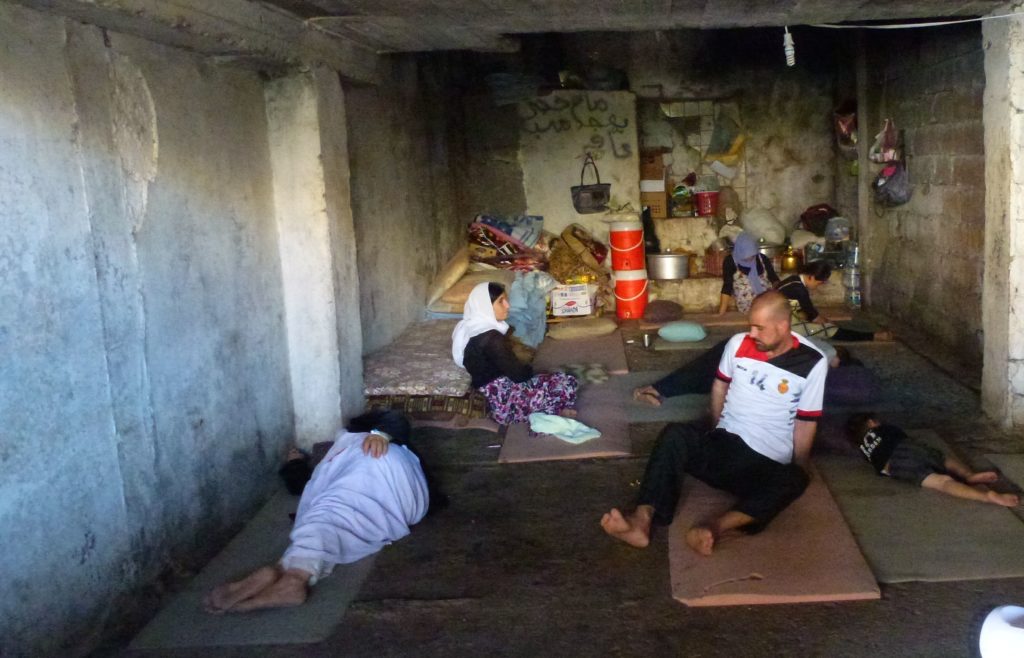
Lucky family in a stall with a roof.
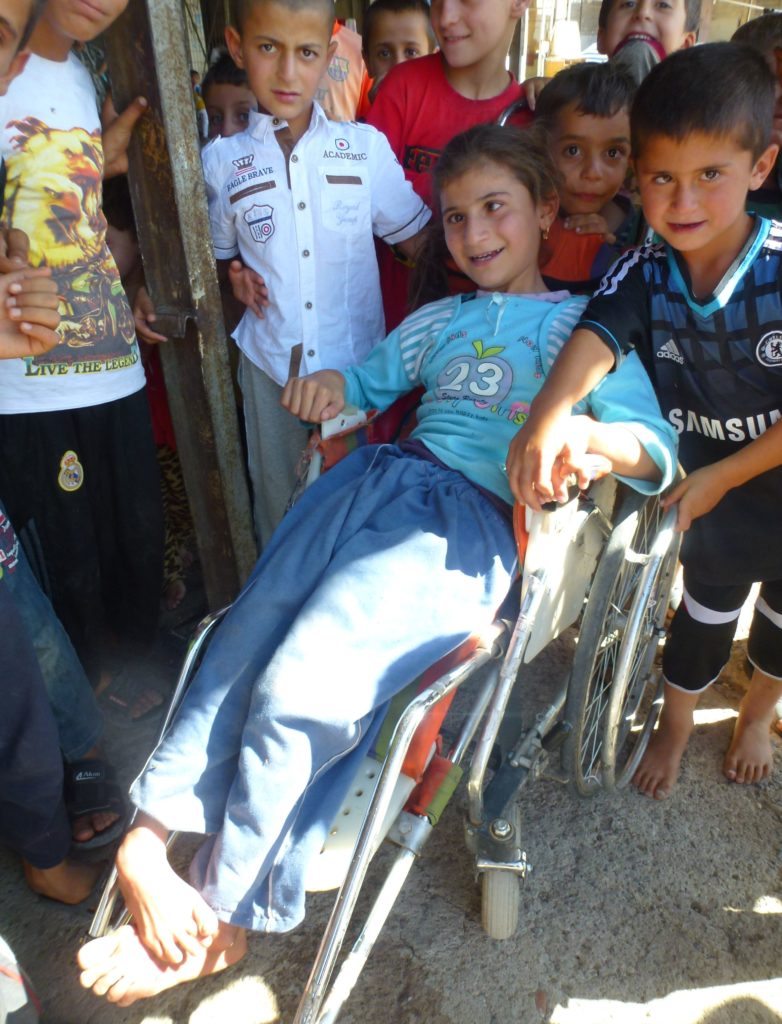
The happy daughter of this zone’s coordinator enjoying a donated wheelchair.
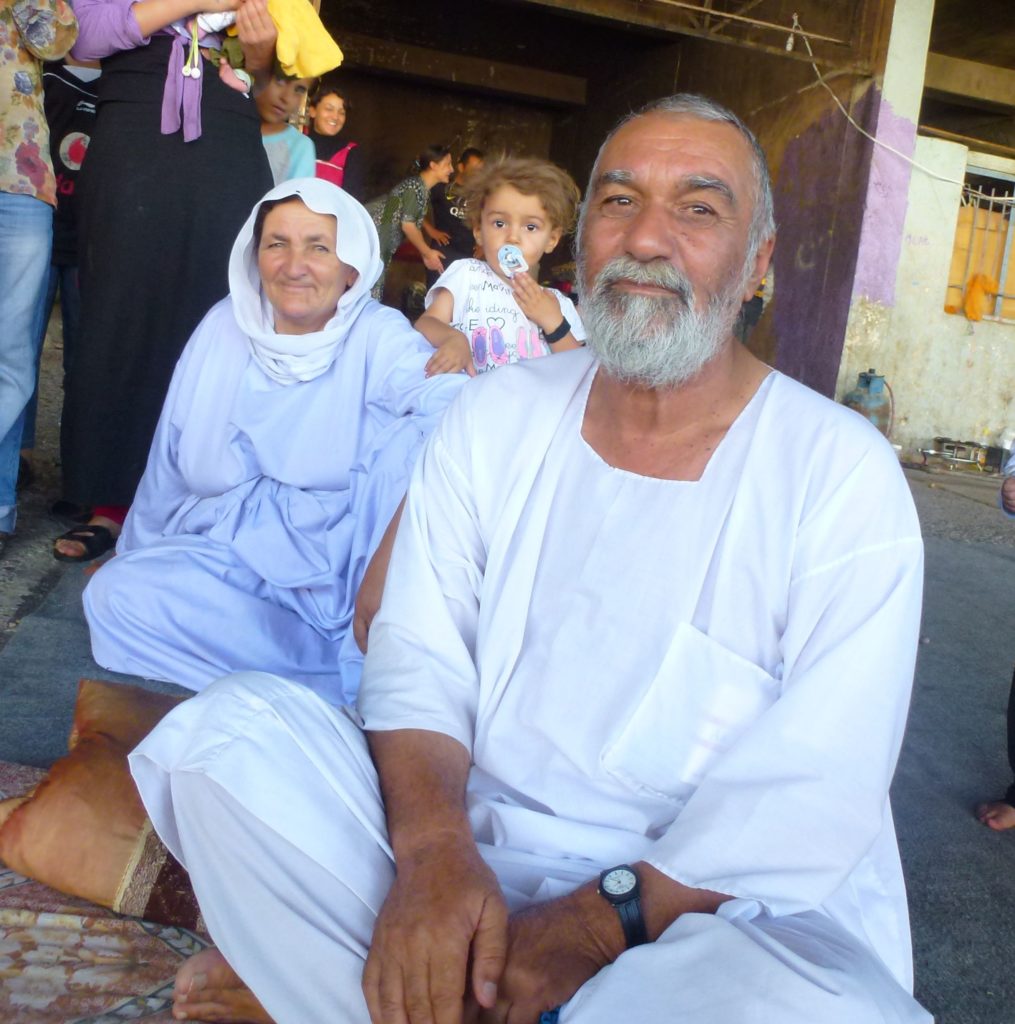
Beautiful, dignified elderly couple sitting in the open.
Joy: Buried Deep in Pain
That evening, we discovered our latest dreamer. He has devoted his life to the dream of sustained community for families with mentally challenged children across Iraq.
But now he and his family were refugees having been driven from their home and shop. With guns held to their heads, he and his son had relinquished their car, their money, their luggage, and walked into the desert with only their lives and the clothes on their backs.
Our discussion extended until sundown. So he invited us to share his family’s relief rations for dinner, and their borrowed sleeping mats on a schoolhouse floor.
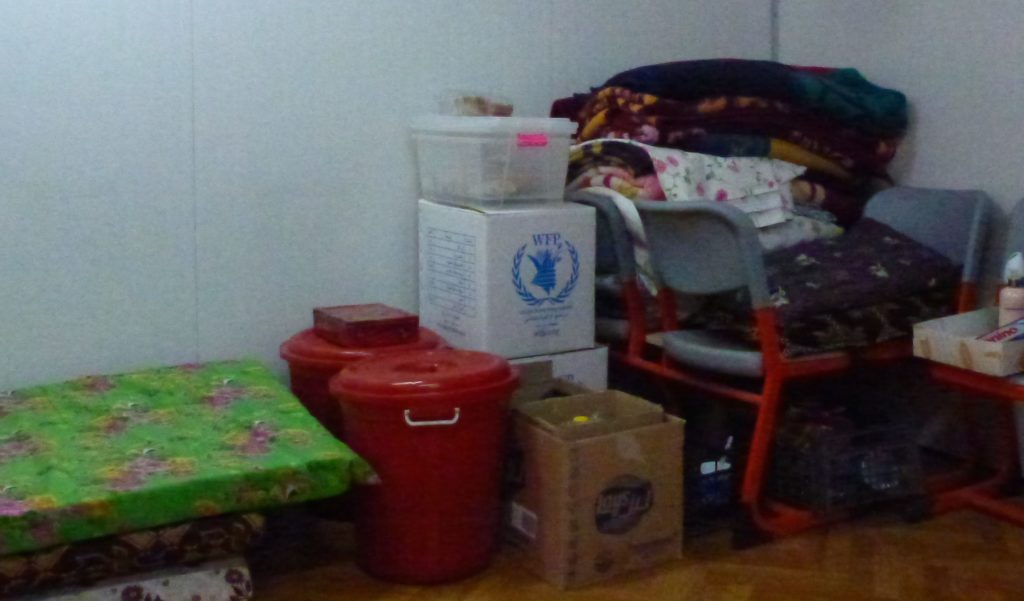
Borrowed and donated rations stored in the corner of a classroom.
We’d never experienced more gracious hospitality. We sipped our sweet village tea, and listened to his heart.
“All pain is important to God. And so as His follower, any problem of the Other is my problem. We must not let our differences separate us. We must transform this disaster into God’s opportunity. My scriptures tell me to pound our swords into plowshares. Now is our chance to love those less fortunate than ourselves.”
He challenged his displaced extended family to share their relief rations with those displaced families from other ethnic backgrounds.
“We, as Christians, had a church welcome us in. But those people, they had no one to accept them. If in our pain, we love, then we will experience God’s joy.”
Recognizing Our Neighbors
David and I are still pondering the wisdom and insight of this humble, remarkable man.
Walking through the desert, bereft of all their earthly belongings, he and his son ware overcome with gratitude. A complete stranger of another tribe picked him and his son up and drove them to safety, and his wife and other children.
The news is full of horror stories of violence and hatred. Yet, in these dark places there are lights flickering. Our new dreamer and his family is one of those lights.
We have discovered a remarkable diversity of new neighbors, of all backgrounds, ready to build a new sort of community together.
As we hugged goodbye (for now), the dreamer said, “The material help is welcome. But what means all the more to us? You came to us. Now we know we are not forgotten.”
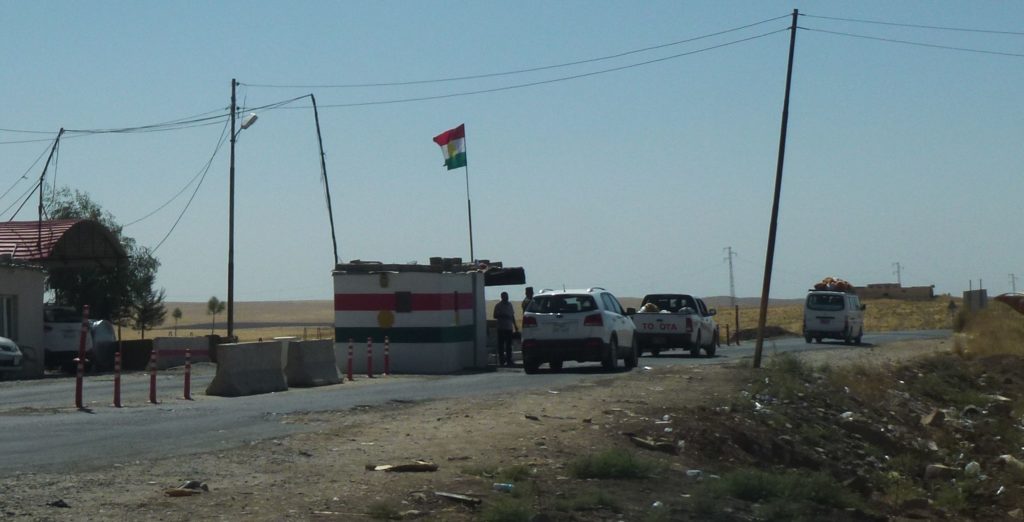
Final checkpoint before heading into an area near active conflict.
Perhaps it’s about time for each of us to stop and ask ourselves, “Who is my neighbor?”
It’s always our turn to start acting like a true neighbor.

